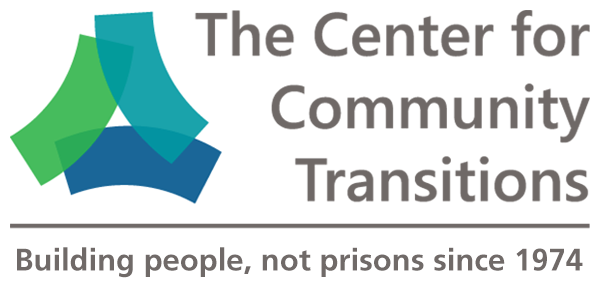The Cost of Parental Incarceration

by guest blogger, Nicholas Perry, CCT Intern
If you asked me a week ago about the financial struggles of a family with an incarcerated parent, I?d have brought up the lost income of the family member imprisoned or maybe the lack of job prospects upon release. 2.3 million children in the United States have an incarcerated parent and face the realities of a damaged financial present and future. Research clearly shows that having a parent in jail can pull a child into poverty or worsen the situation for one already impoverished. As I dug into the topic, I was shocked to learn that when it comes to financial burden, the loss of the incarcerated person?s income is only the tip of the iceberg. Other costs associated with having a loved one in jail include ?legal costs, costs of staying in contact with the incarcerated person, and lost income of the child decades down the road. For a child having a parent incarcerated during their formative years, financial stability is threatened both in the short term,and in their long term future, through the hindrance of their own opportunities for success.
Immediate effects of having either parent incarcerated are either the placement of children in a foster home or strain on the other parent to provide for the children without the second income. This was the impact that was most apparent to me already but even the short term financial strain was worse than I thought. The three main fees are: legal costs, visitation fees, and loss of an income. 65% of families with an incarcerated member struggle meeting basic expenses. 49% with food and 48% with housing. The average debt is over thirteen thousand for court fees, however 40% of children supported by our Families Doing Time program are in households with an annual income of under $10,000 and 92% are in households making under $35,000 a year. What was most shocking to me were the enormous costs associated with visitation and even calling an imprisoned parent. It is difficult enough to maintain a connection through calls and letters but visits are costly and often offer no contact. Out of prison visits for important events or family emergencies can reach up to $100 each day as families are forced to foot the bill for the parole officer themselves. But most significantly, without the parent?s income, a child simply has less resources.
Even after release, having a criminal record remains a large obstacle for parents providing for their children. There are more than 44,000 local, state, and federal restrictions placed on people with criminal backgrounds. The parent will find they no longer have freedom over where they live or what jobs they can work. While housing discrimination is illegal, it still occurs. Daniel Bowes, an N.C. Justice Center lobbyist, explained that every arrest shows up on a background check and he estimates that 64% of employers are influenced by it. While I knew this to be the case as every job I have ever applied for asks whether I have a record, thinking about people with records as parents adds a different dimension. This further limits work opportunities and may even worsen a family’s economic situation since there is a possibility of having to feed one extra person now out of jail without that person?s income. Their children were innocent yet they pay the price even after their parent?s sentence ends.
Long term, children whose parents have been incarcerated tend to suffer mentally and emotionally during their development leading to an increased risk of incarceration themselves.Mental illness is more common amongst these children and their grades tend to suffer. Kristin Turney, a UC Irvine sociologist, examined minors with parents in jail and even when controlling for race and socioeconomic status found an increased probability of attention disorders, anxiety, and learning disabilities. But here is what really gets me: there is some evidence that a having a parent incarcerated is more traumatic than having divorced parents or even a deceased parent. Studies by various psychologists have shown how important our relationships with our caregivers are during our formative years and having a parent who is unable to be present, is devastating to children. This devastation leads too often leads to academic struggles and future financial instability.
Financial stability of children with incarcerated parents is threatened through no fault of their own. What is most heartbreaking is that parental incarceration has not only short term but lifetime long consequences. Long term these children are less likely to attend college or be employed and more likely to go to prison themselves. I?ve always been aware of how your parent?s income or education level can affect your future income or education but I have never thought about the effect incarceration of a parent has throughout the rest of a child?s life. ?
I?m grateful that a program like Families Doing Time exists in Charlotte to help children with incarcerated parents. CCT?s mission is to help not only individuals, but families impacted by incarceration. Through Families Doing Time, CCT offers an in-school support program called ?Empowering Kids with Incarcerated Parents? (EKWIP) that teaches coping skills and life skills to kids to help curtail the ill-effects of parental incarceration. Annually, the program serves about 300 children in 16 different schools. Families Doing Time also offers case management support and referral services to families, family support groups, and much more.
Despite CCT?s work with families, the need in Charlotte is still great. CCT estimates that at any given time there are around 5,000 children experiencing parental incarceration in Charlotte. CCT?s is stretched to capacity trying to serve just a fraction of those children. If we want to break the cycle of poverty and incarceration we need more resources and services for children impacted by incarceration.

